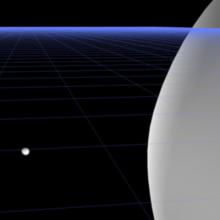
Description
This award continues support for a research program at the Rochester Institute of Technology (RIT) to model merging black-hole binaries in the highly-nonlinear regime. Research will concentrate on binaries in the technically difficult small-mass-ratio, highly-spinning, and highly-precessing regimes, that requires new developments in code optimization, gauge conditions, initial data generation, and hybrid numerical / perturbative techniques. With these developments, the code will be used to generate a large number of simulations of extreme binaries in order to produce waveforms of sufficient accuracy for LIGO/Virgo data analysis, comparison and validation of Post-Newtonian approximate waveforms, and to model the astrophysical consequences of black-hole mergers. This project will directly benefit ground based gravitational wave detectors such as LIGO and Virgo, the Numerical INjection Analysis (NINJA) project to see how well numerically generated waveforms can be recovered by data analysts, and an emerging new field in astrophysics where astronomers search for the observational consequences of merging and binaries and recoiling black holes.
Recent computational breakthroughs, due in part to the contributions of the RIT team, have finally allowed numerical relativists to efficiently solve the Einstein equations for coalescing binaries, and has made gravitational-wave astronomy in the strong-field regime possible. Gravitational-wave astronomy promises to provide a revolutionary new view of the universe, complementary to the electromagnetic perspective. In addition, this award will be used to greatly enhance the research effort at RIT as a whole by providing training and mentoring opportunities for postdocs and students. This award will also allow continuation of activities in education and public outreach, including programs designed to introduce youths from disadvantaged and underrepresented groups to exciting scientific developments and the opportunities offered by the Institute and other local colleges.